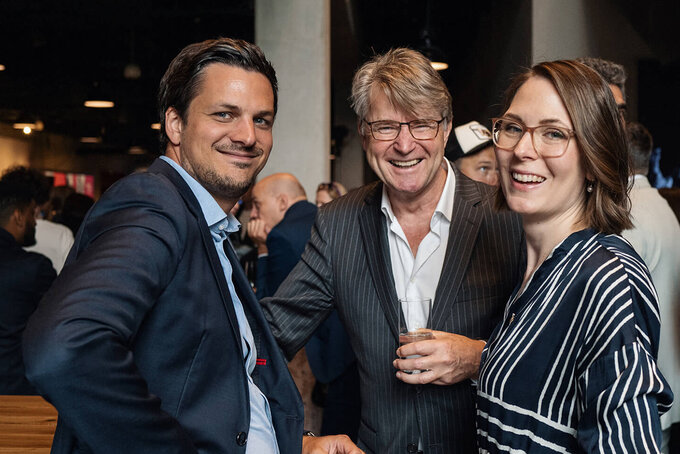“Attitude is not a campaign, but a fundamental principle”


Florian, when was the last time you had a real brand moment where a brand impressed you – and why?
I had that moment at the Design Business Days with Michael Fritz from Viva con Agua. He gave a talk about responsibility, about the fatigue that arises when a new technical promise of salvation appears every week. He described very clearly how difficult it is not to stray from the path set by your own compass amid this constant noise. I was impressed by his honesty. I saw an organisation that didn't focus on impact but spoke from a position of principle. Viva con Agua acts before it communicates, and that's exactly what makes it credible. For me, it shows that a strong brand is not created through words, but through the consistency of its actions.
What role will brands play in 2026 – and what makes strong brands today?
They create spaces where people can orient themselves and participate. They focus less on reach and more on relationships. This is particularly relevant right now, because we are seeing companies in the United States scaling back entire diversity programmes out of fear of political backlash. This trend shows how quickly brands lose their stance when pressure mounts. A strong brand is not intimidated by this. It understands belonging as a fundamental principle and not as a campaign. Belonging knows no gender, no ideology and no changing political mood. A brand remains true to itself, even when the world tries to pigeonhole it. And it makes decisions with courage and clarity, rather than hiding behind perfection or fear.
Ten years German Brand Awards: how has brand management changed?
Brand management used to be a tightly controlled process with clear rules and fixed images. Today, it is a learning curve. Many brands are still struggling with this change and are making decisions based on caution rather than conviction. The most exciting brands of the past ten years were not the ones that remained unchanged, but those that were able to learn. The world has become digitally loud and physically vulnerable at the same time. In this combination, authenticity is regaining importance. This is where service design plays an important role. It shifts the focus from symbols to relationships. It forces brands to think not only about their external image, but also about how they interact with the people who live and work with them. A brand remains strong when it does not demand trust but has earned it through its behaviour.
What advice would you give to brand managers who want to remain relevant over the next ten years?
I would advise them to let go of old certainties. Unlearning creates space for new things. Brands only grow if they allow themselves to take risks. At the same time, they need new voices that don't come from the old system: young people, fresh perspectives, different experiences. And I would advise them not to view attitude as a communication idea.
How would you describe the role of brands in 2026 in three adjectives?
I believe that brands will need to be able to do three things in particular in 2026: they must be adaptive, remain unbiased and take responsibility. A brand that thinks adaptively understands change as normality. It does not wait for stability, but moves with what is happening. An unbiased brand remains curious. It tries things out, asks questions, allows itself to make mistakes and learns from them instead of apologising for every deviation. And a responsible brand has a feel for how people live today. It makes decisions that have an impact and don't just look good on paper.



